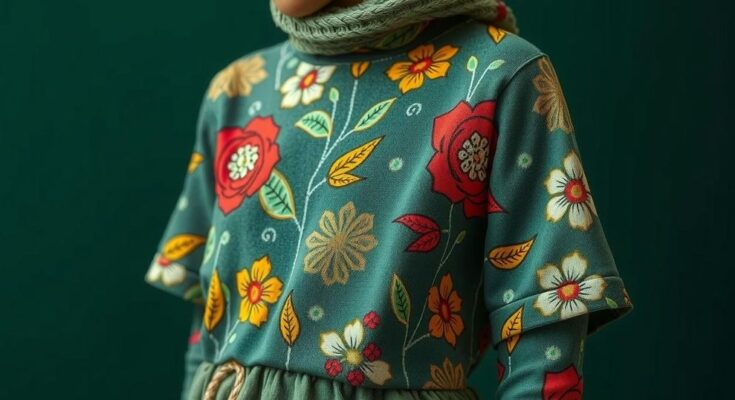The resurgence of Ireland’s clothing industry has been driven by a new generation of entrepreneurs focused on sustainability and ethical practices. Brands like Due South, Minti, and Grown emphasize quality, design, and environmental responsibility, reflecting a significant shift in consumer demand towards sustainable fashion. By utilizing organic materials and promoting upcycling, these companies illustrate a successful transition from mass production to responsible manufacturing.
In recent years, Ireland has witnessed a resurgence of its indigenous clothing industry, propelled by a new generation of entrepreneurs committed to sustainability and ethical practices. Companies like Due South, Minti, and Grown are not merely focused on mass production but emphasize quality, design, and environmental responsibility. By leveraging organic materials, promoting upcycling, and instituting eco-conscious manufacturing processes, these brands illustrate a paradigm shift in the fashion landscape. This movement is characterized by an inclusive approach that attracts environmentally aware customers of diverse demographics, reflecting a broader cultural shift toward sustainable living. Due South, co-founded by Paul Harrington and Mel Mondini, epitomizes this ethos with its offerings of minimalist clothing made from organic and recycled materials. Harrington’s vision was inspired by the Irish landscape, and he asserts the importance of sustainability despite the higher costs involved in sourcing organic cotton. Similarly, Laura Egan’s Minti website showcases a unique model of upcycling second-hand clothing, coalescing her design background with a strong commitment to reducing waste in the fashion industry. Last but not least, Grown, established by Damian Bligh, Stephen O’Reilly, and Neil McCabe, integrates eco-friendly practices, such as planting a native Irish tree for every garment produced, reinforcing their commitment to environmental stewardship. The emergence of these sustainable clothing brands marks a significant turning point for the Irish fashion industry, transitioning from a focus on cheap production to a model that prioritizes ethical practices and consumer awareness. These companies have successfully responded to growing market demands for transparency and sustainability in fashion, proving that it is possible to create a profitable business while also prioritizing the well-being of the planet and its resources. As they continue to flourish, these entrepreneurs set an inspiring standard for future endeavors in sustainable fashion both nationally and internationally.
Ireland’s clothing industry has experienced significant challenges since the 1970s, with many local brands unable to adapt to changing consumer demands. The rise of ethical and sustainable fashion has paved the way for a new breed of entrepreneurs who approach clothing design with a strong focus on environmental impact and quality. The growth of brands such as Due South, Minti, and Grown showcases a shift toward a more conscientious consumer base that values sustainability, ethical production, and unique design sensibilities. This revitalized sector reflects not only a response to global trends but also an evolving cultural mindset towards fashion and responsible consumption. These businesses utilize innovative materials and practices to reduce their environmental footprint while creating appealing clothing items, thus marking a return to a form of fashion that values craftsmanship and integrity rather than mass production and low-cost goods.
The revitalization of the Irish clothing industry by new entrepreneurs focused on sustainability illustrates a significant shift in consumer habits and production standards. Brands such as Due South, Minti, and Grown demonstrate that it is feasible to combine profitability with environmental responsibility. Their success serves as a testament to the growing demand for ethical fashion and highlights an important movement towards sustainable living in the textile industry. As these brands expand both nationally and internationally, they inspire a broader cultural transformation towards responsible consumption.
Original Source: www.irishtimes.com




